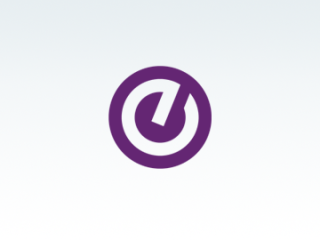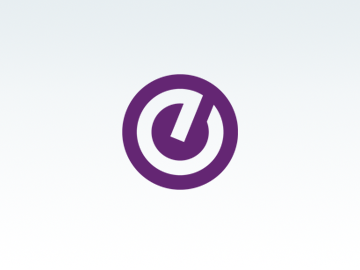How philanthropy can amplify outcomes for higher education

Key takeaways
- Focus on storytelling and use every lever to support institutional needs
- Use technology to better understand your donors’ interests and passions
- Take the time to review the data and think about strategy, not just tactics
- Quickly pivot priorities to be nimble and flexible
In providing financial resources to higher education institutions, the Coronavirus Aid, Relief, and Economic Security (CARES) Act presents advancement leaders with the unique opportunity to adapt and innovate their fundraising efforts to support immediate needs.
Beth Brenner, vice president for advancement at Ellucian, spoke with Mark Luellen, vice president for advancement at University of Virginia (UVA), about how his team is pivoting to better serve the UVA community during the coronavirus (COVID-19) pandemic.
This interview has been edited for length. View the full interview here.
Beth Brenner: What was the impact on your existing fundraising priorities that were already underway when this pandemic happened?
Mark Luellen: This is a unique opportunity for people to hear from us. In many ways, our advancement team serves as the ambassadors for our university. We may have been some of the last people that our donors and friends saw before everything broke loose. They're counting on us to communicate and be in real time communication with them.
I'm happy to say that because of the great work of the team across the university, we've documented about 31,000 individual contacts in the last two months. People have been entering their contact reports into the system within 24 hours, making sure people are aware of the outreach, and ensuring our community is being engaged. We even put our staff support on the phone to call donors just to say, “Thank you”. We pretty much put everybody into action right at once.
Beth: Did you see a big shift in donor giving patterns as you focused more on the needs related to the COVID-19 response?
Mark: The benefit of higher education is most of us have strategic plans that are over long periods of time. While we need to stick to our core mission, there's elements of our core mission that could use support now, versus later. I think that has resonated with a lot of our alumni. Maybe a capital project isn't the immediate need right now but having expendable scholarship support for those who have been impacted is. We all know financial aid will probably increase. Maybe there are funds for faculty support for recruitment and retention during these times. We've seen an interest from our alumni and our donors around how they can make an immediate impact.
We've reached out to a lot of people with areas that they haven't traditionally supported, and just said, "We'd like to have the opportunity to talk to you about that. If now's not the right time or you're focused on charities in your local community, we get it. We completely understand. We don't want to put you in an awkward spot. But if you're open to talk, we'd love to have a conversation with you." Those conversations have gone very well. I think people have appreciated knowing what the current priorities are and where they could be of most help.
Beth: Any observations you can share from the adjustment your team has made to digital engagement and outreach in the absence of in-person meetings and events?
Mark: One of the data points that's interesting to share is digital engagement around events. Last year during the same period of time, we had about 370 events. We've done far less events this year: we've done about 50, and they've all been done digitally. Surprisingly, we’ve had the same number of registrations for our events this year than what we did over 370 events last year.
These digital events have been mainly focused on academics. There's a lot of focus about what the content is. What do we think will be the most appealing to people? How can we use different vehicles from Zoom to the good old-fashioned telephone and conference calls with everyone?
I think everyone's yearning for more content and information and a sense of community. I think that's something that's our responsibility to provide.
Beth: What have you found to be the most effective way to connect with donors and have a conversation that might include incentives to give, such as the ones that are outlined in the CARES Act?
Mark: I think it comes back to the individual institution and what you think will resonate with your individual markets and stakeholders. For UVA, we focus more on storytelling. How do we tell the story of our students? How do we tell the story of our faculty? How do we make sure that people are aware?
We haven't led with the CARES Act. We've led with the institution, the institutional need, and again, just good old-fashioned storytelling. But we want to make sure people are at least aware. So, if they have questions, we could answer them or at least know who to go to, who is more of a specialist and expert. There's a lot of details in the CARES Act. So, having people who have legal minds and much deeper knowledge on some of the details I think is really important.
Beth: Has the COVID-19 crisis and the challenges that UVA has faced as a result increased the emphasis on advancement, alumni relations, or philanthropy in general? Has the culture of philanthropy at UVA become stronger?
Mark: Absolutely. While we're a public institution, about 20 percent of our total funding comes from philanthropy or the impact of philanthropy. So, it could be our endowment and the spin-off of our endowment, but 20 percent of our operating budget comes from that. It's a very crucial part.
I think this is a time where our institutional leaders, and our academics, and our students need us more than ever. I think it's been an energizing force for our community, particularly as they had to move home. It's a challenging environment, not to be traveling, not to be on the road, and to just do their business in a different way.
It's caused a lot more open dialogue and transparency across the Grounds about what our needs are and looking at all levers. I think our donors are expecting us to use every lever—the CARES Act as one, philanthropy as another lever, institutional support as another—and not just count on one thing.
Strong advancement professionals are the masters of the pivot. You have to be able to pivot and be nimble and be flexible. As you talk about priorities and culture, I think that's what our institutional leaders need to count on us for, our ability to make sure we have the right information and pivot quickly as new information arises, and not just be stuck in our normal ruts or our normal plans. We have to be able to move and adjust and be nimble. Being the master of the pivot allows us to do that.
Beth: As UVA has identified institutional needs and prioritized how to best distribute government funds, how is that influencing your fundraising strategies going forward?
Mark: I think this idea of looking at all levers…I think that's part of our job, too. It's not just looking at our job as securing and providing revenue. If you have endowments that you haven't maximized as much in the past, making sure you maximize those. Make sure you’re looking at underwater endowments that may be impacted due to market returns. What do you want to do strategically around those? I think focusing on all levers is really, really important.
We all have funding priorities or have had funding priorities set. I think it’s also important to have an honest and direct dialogue with other leaders about what we can hit pause on for right now because it won't resonate in the market or it's not the right time. We need to have those tough conversations. I know we've had them at UVA. It doesn't mean they're going to go away forever. It just means for the next six months we’ve got a lot of other things to focus on.
How do we focus on the key priorities of the current time? Make sure people are aware of those, but also build upon those.
Are there opportunities for staff and colleagues who may be underemployed a little bit now to take on other assignments? Could they be working on developing white papers and the strategies and the fundraising plans for when we do come out of this? I would say it's not “either/or”. It's “and/both”. How do we focus on the short term, but also use this opportunity to be ahead?
I think now gives us the capacity, but we have to be open and direct about what's not going to play well right now. It's a tough conversation to have, especially for people that are very passionate about areas that need funding, and they've been focused on for years. But if you don't have that direct dialogue, I think we're all just going to be in a downward spiral.
Beth: What is your perspective on the role of technology for advancement as we adjust to this new landscape?
Mark: I think that the way we go forward is going to be a lot different than the way we've done it in the past. We can’t solely base our relationships off the fact that we have to go see somebody in person because that's what we've always done. That may not be successful going forward. People may not want to visit us.
Our donors may not be open for the type of event where we shake 200 hands as people come in the door. I think we can do a better job of using technology to determine what people's interests and priorities and passions are.
As I mentioned, we've been doing a lot of engagement events. When we can see that priority X has had our highest global representation of any topic, that's information that we should source. That says, "This topic may be of interest to our global and international constituents more so than this other priority."
I think we have to get rid of our individual biases about what we think people will enjoy and actually use the data to help prove that this is the information that people are interested in.
We don't want to be Big Brother. We don't want to be creepy about the work that we're doing, but I think the data does give us the opportunity of using technology to better understand what people's interests and passions are.
Beth: Have you been able to mobilize your team around prioritizing the capture of that data? How have you been able to get them all committed to making sure that you're capturing that data through those interactions and using that data effectively?
Mark: We've always had a culture around data transparency and data knowledge at UVA. I think though that it's only been enhanced now. I'll give an example of this. After every one of our digital events, I get a report that's pushed to me that shows the age demographics of the attendees, where people are living, what's resonating on the West Coast versus what's resonating on the East Coast, and all the different markets that we have.
I think that the tough thing is taking the time, particularly right now, with the speed of everything that's in motion to think about strategy and not just tactics, because I think you can quickly get wrapped in the next event versus saying, "Okay, what did we learn from this event?" Look at it quickly and say, "This didn't resonate, but it really resonated here, but not there. Let's do it again. Let's do a targeted effort on this one in this market and try something different in that market."
So again, with the ability of technology and the speed of which we can move, I think that gives us great opportunities to tailor our messaging, our storytelling. What's popular in Richmond may be different than what's in New York right now or what's in San Francisco.
So, I think the broader, more global point is making sure we're using the data to discuss strategy and taking a moment of pause to think about it before getting sucked into the weeds of the next event. Logistics are important; don't get me wrong, but the strategy is even far more critical.




